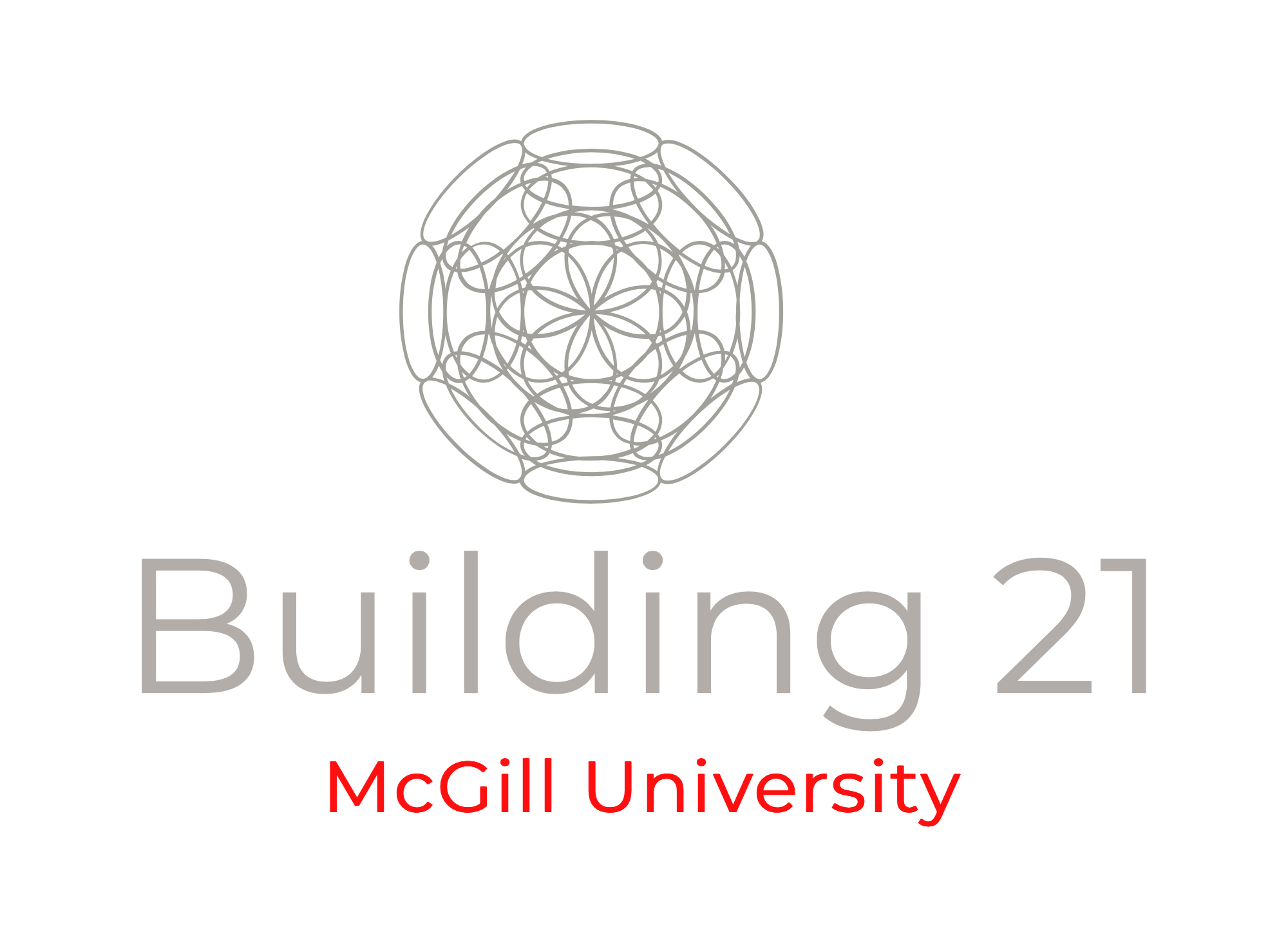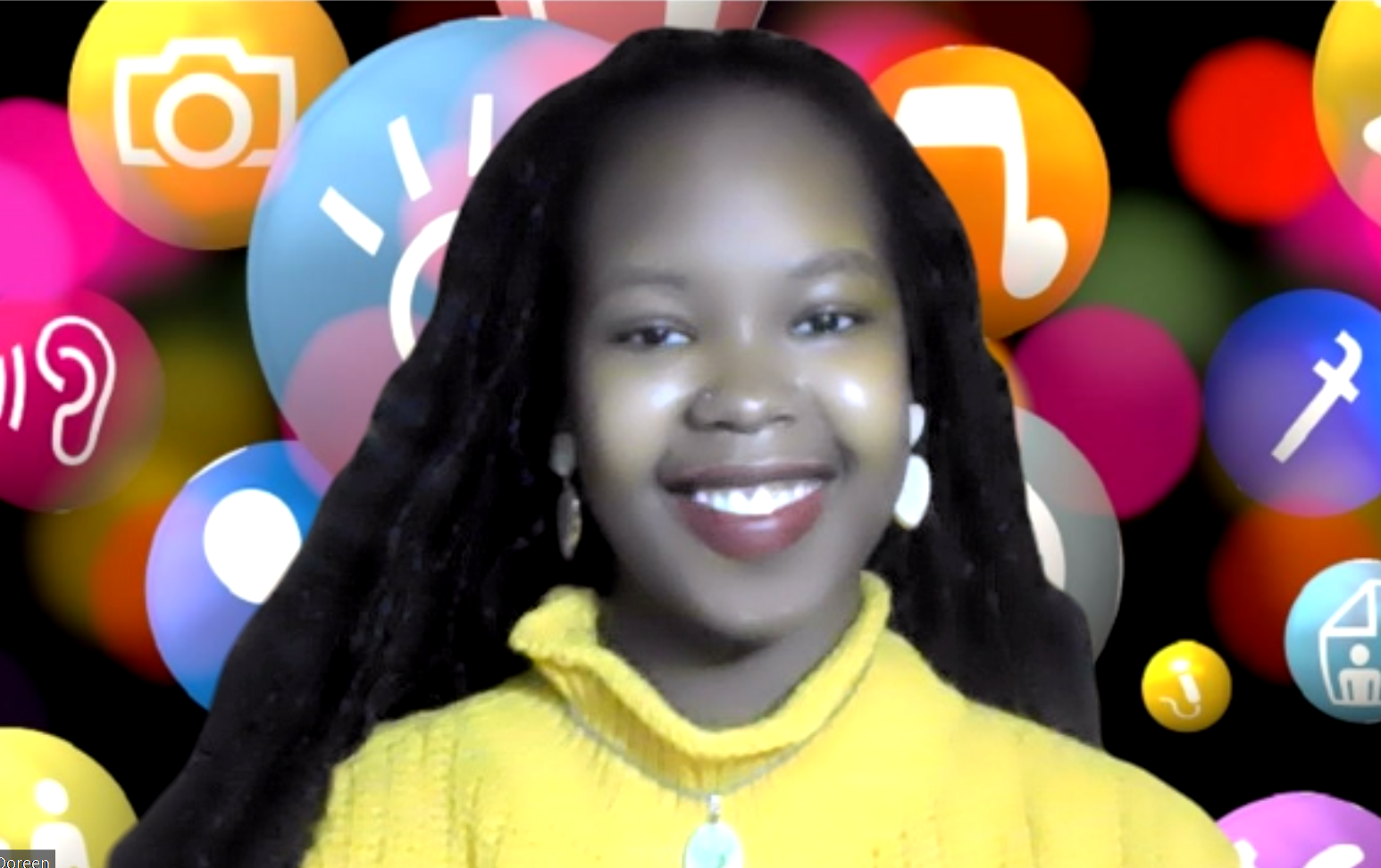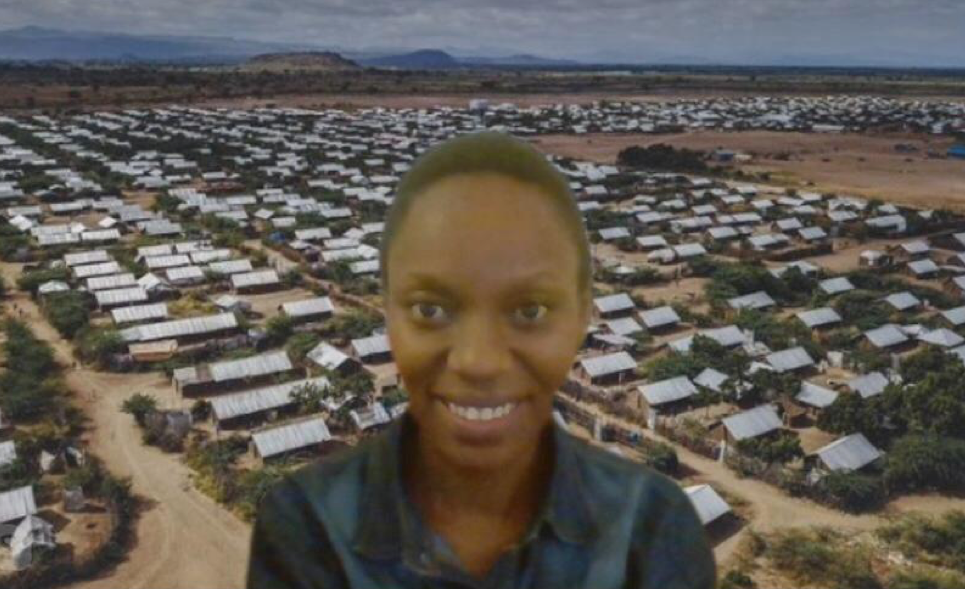BLUE Interns, Winter 2021
Nogieru Eghobamien
BSc Bioresource Engineering
Corruption negatively influences the economic, political, and social efficiency of any country in which it exists, and it undermines the trust that emerging countries have in their governing bodies. Corruption in emerging economies acts as a barrier to a fair distribution of a country's resources among its citizens.
I am Nogieru, a third year Bioresource Engineering student who has lived most of my life in Nigeria, a developing country that has seen a rapid increase in economic activity over the years but has failed to see a corresponding rise in the majority of its citizens’ overall standard of living. This is due to the continuous misallocation of available funds and resources by public sector officials. Having witnessed this menace and its profound effects on citizens, I have long dreamt of a corruption-free Nigeria, one without the complexities and injustices that corruption brings.
Through my time at Blue 21, I hope to tackle the question: Can an emerging technology like blockchain be a cure to corruption in our world, using Nigeria as a case study? My project explores the possibility of implementing a decentralized blockchain system in Nigeria that holds the potential to secure and protect identities while promoting transparency and fairness in transactions. I hope to identify the most non-disruptive techniques for implementation while evaluating the impact this may have on the behaviour of citizens.
Cynthia Feng
MSc Biochemistry
I recently completed my Master of Science in Biochemistry at McGill. My research focused on viruses with applications in cancer therapy and the agricultural industry. Besides my scientific research, I am passionate about science communication, educational development, and community and justice work.
My project at B21 aims to envision community safety through an abolitionist lens. I hope to examine what a world without prisons and police would mean for our community and ask how we create a collective sense of safety in both the present and future. How might we achieve safety through investment of resources into housing, healthcare, food security, education, childcare, and community programming, rather than a reliance on policing? I am further interested in understanding how our social relationships and behaviour must change in an abolitionist world. How do we view ourselves and our community members as agents with choice who have the capacity to choose and cause harm? What community-based measures might be in place to prevent harm and what consequences result when harm does occur? I think creating a safe abolitionist future necessitates fundamental changes in our relationships to society, each other, and ourselves; I am deeply interested in exploring just how much would have to radically change.
Brandon Kaufman
BA History and Cultural Studies
My name is Brandon Kaufman and I’m currently a fourth year student at McGill working on a Joint Honours degree in History and Cultural Studies. My main academic interests are in cultural and intellectual histories. My work mostly focuses on interfaces between film and modernism in Eastern and Central Europe in the twentieth century, and the American cinematic avant-garde that emerged in New York in the 1960s.
Outside the academy, I write for Cult MTL, Montreal’s alt-monthly newspaper, and do some freelance writing on film elsewhere. My main passion, though, is filmmaking, and I plan on pursuing an MFA in directing after I complete my degree. My project for B21 is concerned with the future of experimental cinema, namely the diary film. This rather unique form seems to me an important nexus between self-expression and personal/collective histories, and especially how those two are mediated by technology and media.
My investigation into what the diary film will look like in 2050 will, I hope, take the form of a creative film project, one which utilizes archives and historical research to look into the future.
Watch Brandon Kaufman’s final presentation:
Anna Brandenberger
BSc Honours Physics and Computer Science, Minor Mathematics.
My name is Anna Brandenberger, and I graduated this fall 2020 with a BSc in physics and computer science from McGill University.
A very interesting result from the quantum world is that contrary to the classical setting, it is possible to create an algorithm to gain energy from erasing qubits rather than losing energy. This comes from the notion that conditional entropy can be negative for quantum systems, which is fundamentally linked to quantum entanglement. This could be applied to quantum computing: the idea is that in the course of a quantum algorithm, there are moments where registers erased, and it is possible to use this step to extract work and absorb environmental heat in the erasure, instead of dissipating heat.
My project therefore aims to find explicit protocols for efficient online erasure of quantum registers. In the long term, this would help keep quantum computers cool through intensive computations.
In parallel, I am interested in ways to visualize entropy in both the classical and quantum worlds. This would help introduce the concept to a much wider audience.
Minju You
MSc Psychiatry
I am a Master’s student in Psychiatry studying the environmental and biological risk factors of depressive and anxiety symptoms of women during pregnancy and after childbirth. I am interested in learning about memories and dreams of different people through readings of history of indigenous women in Canada, films on Nostalgia or Fantasy and discussions of experiences and dreams during the BLUE internship. Memories that are bound to warm or fearful emotions are different for different people and is related to personal and collective histories. Nostalgia for a collective history can bring people to be in solidarity or be exclusive of others or glorify violence. Different memories and dreams that we have are related to our perception and actions towards the future. Nostalgic emotions or fantasies could reveal more about what we are grieving and what we dream of to come in the future. Nostalgia may also contribute to resilience if we can imagine that as there had been good things in the past, good things will come again in the future even if there is a lot of uncertainty in the present.
Watch “Remembering” by Minju You:
Faizan Khan
MSc Software Engineering
I just completed my masters in software engineering with a focus on programming language design. Before that, I wrote device drivers for a real-time operating system.
The broader goal of my project is to provide a practice platform where people can repeatedly practice the key skills that they need to get good at something.
In almost every field, what separates the best players from the normal players is the number of hours of deliberate practice accumulated over the years. Therefore, when all else is normalized, the path towards expertise boils down to, a) identifying the key skills/metrics and, b) repeating them over and over again.
The first instance of the project will answer the question of expertise for software development i.e. what are the key skills/techniques, that if performed repeatedly, would make someone a super-human developer?
Doreen Kiprono
BSc Microbiology and Molecular Biotechnology
Ubunifu. This is a term used to refer to creativity in Swahili. What does it mean to be creative in today’s world? How have spaces, interactions and perceptions of artistic careers evolved to date? These are just but a few of the questions my project at Blue 21 hopes to explore. My name is Doreen Kiprono and I am a U2 undergraduate student in the Life Science program at Macdonald Campus specializing in Microbiology and Molecular Biotechnology. My project seeks to explore the possibility of creating not just networking platforms but a community where individuals in non-traditional careers such as singing, photography and dancing are able to connect with other colleagues as well as huge industry players such as music labels or theatre and publishing houses. The future is demanding of a diverse workforce and the younger generation has proved that they are able to break from the mould. They are challenging the narrative that the “white collar” nine to five pm type of job is the only respectable way to earn a living. A lot of upcoming youth are resourceful when it comes to creating and posting their content but struggle to market themselves or find mentors in those industries. I intend to investigate the current challenges they face and in close association to their industries. Hopefully this will open up conversations that would fuel creation of platforms such websites, apps or meeting places where such individuals can convene for this purpose.
Watch Doreen Kiprono’s final presentation:
Brianna Cheng
BA History and Political Science
I am currently in my last year of a Joint Honours History and Political Science B.A. at McGill. Throughout my degree, I have been passionate about Asian North American history and its intersections with broader histories of race, immigration, gender, labour, and colonialism. At Building 21, I will explore Montreal’s Chinatown, a relatively under-studied community in the field of North American Chinatowns. Specifically, I seek to understand what purposes Chinatown serves for its residents and more broadly, for Asian-identified folks in the city at large. Today, Chinatown is “contained” between René Lévesque, Viger, St Urbain, and St Dominique. Instead of limiting my project to these boundaries, I hope to map Chinatown beyond its supposedly finite borders, including zones that were once part of Chinatown but bulldozed for development projects, prominent areas of Asian activism, and transnational regions where community members maintain ties to. My project is especially urgent considering how COVID-19 has spurred waves of anti-Asian racism and a sudden drop in visitors for independent businesses in Chinatown. Yet these developments are not new—Chinatown has long been threatened by nativism, gentrification, and displacement. My project will be attuned to these issues and their significance for community members, but I reject the notion that the best possibility for Chinatown is one of survival. Rather, my project will envision a radical Chinatown that serves current and future Chinese and Asian generations in Montreal.
Jenny Zheng
BSc Neuroscience, Minor Computer Science
I am a second-year undergraduate student at McGill University with a major in Neuroscience and a minor in Computer Science. Given my background as a pianist and my longstanding interests in music and the human brain, I am passionate about exploring the role of machine learning in music therapy. There are many ideas that I hope to explore at BLUE; for instance, given people’s unique musical preferences and neurological makeup, can we “prescribe” music that is unique to the patient to help the patient achieve a particular outcome? Specifically, I am drawn to the following questions:
• How do we break down music into individual elements (rhythm, pitch, etc.) and determine the specific elements that are responsible for someone’s affective response to a composition?
• Can we incorporate machine learning-generated compositions to the typical repertoire of music presented to patients in music therapy and achieve a better outcome?
Renatha Giramahoro
MSc Public Health
Renatha Giramahoro is a Master of Science in Public Health candidate at McGill University in Canada. She is passionate about the improvement of healthcare systems in developing countries, and the betterment of health status of the forgotten and marginalized population. Renatha was born and raised in Rwanda. She holds a bachelor’s degree in Medical Laboratory Science from Oklahoma Christian University, USA. She participated in various public health related initiatives in Rwanda, Mauritania and Tanzania. Giving back to the community through the creation and implementation of innovative initiatives is what motivates Renatha to aim high and work hard. Renatha grew up in a rural area with no electricity and water. However, her life course was changed thanks to education. The opportunities that were given to her to pursue education in her home country and abroad have been the basis for a better and brighter future. There are other young girls and boys whose future can be brightened by providing them with a platform for quality education, therefore employment opportunities. Children in refugee camps are not only affected by the sudden displacements, but also the lack of a clear vision of their future. How can these future leaders, doctors, engineers, talented musicians and so on be empowered and supported to pursue their goals and dreams? What if all the school aged children in refugee camps were attending schools? How would it feel to see more resilient communities in refugee camps? All these questions have ignited in me a passion to contribute to the betterment of people in refugee camps by investing in education and employment opportunities. Thanks to the Building21 network, I got an opportunity to work on a project that aims at improving the education system in refugee camps, as well as bringing about sustainable development by supporting community resilience.
Sarah Graham
Inaugural Recipient of the Cordelia Dingle Fellowship for the Future of Urban Systems
BA Gender, Sexuality, and Feminist Studies
Sarah is a recent graduate of McGill’s Institute of Gender, Sexuality and Feminist Studies. She was drawn to her studies after years of volunteering directly with her local communities through shelters and helplines. Through her studies, she examined the many ways we must overhaul our norms, ideals and institutions to re-create a world that values people over profit.
Her project stems from the question; in a society filled with excess, why does homelessness persist? Canada is supposed to be benevolent, yet annually hundreds of thousands go without the basic dignity of stable housing. Through her podcasts, Sarah will unite diverse perspectives to understand the complexities of Canada’s housing crisis and how we can bring an end to homelessness.
Project goals:
Encourage a collective rethinking of stereotypes of worth/lessness, to further a recognition of housing as a fundamental human right.
Explore options of redirecting police funding towards housing and health care, such as Housing-First* policies.
COVID-19 has ignited a public reckoning with the ugly truth of who Canada has always cast aside. COVID-19 has also shown the power of unity. Sarah’s project will be grounded in this potential.
*Housing First (HF) policies get people out of shelters and into homes. In countries like Finland, HF policies have been successful. It is time for us to provide housing to all, no strings attached.
Bundle of arrows backdrop inspiration: Prof. Iakotennikonhrare Gabrielle Doreen taught me about Kasastenshera - the power in common unity. She used an illustrative Kanien’kehá:ka proverb to summarize this principle: ‘one arrow is easily broken, whereas a bundle of arrows cannot be bent.’
Mir Abdullah al Rakib
BA Honours Political Science, Minor IDS
Abdullah is a 2nd year undergrad student at McGill who made a complete shift from pure sciences in high school to arts to try it out for the ‘bit.’ The bit ended up interesting him so much that now he wishes to carry out further research and projects in the topics, conflicts and issues revolving around global affairs and not stay limited to the 19th century theories taught to him in Leacock 132 (and over zoom)!
He draws his inspiration from the Arab Spring protests which occurred without even the slightest bit of idea from popular theorists and practitioners. This fascination is multiplied in magnitude with the diverse outcomes of the protests with some transitioning into democracies and others sliding back into more authoritarian structures. In the radical future of 2050, Abdullah’s project wishes to “Redefine Democracy.”
His project involves creating a spectrum of all the democratic nations and institutions to rank their “effectiveness”, “efficiency” and “responsiveness” to their citizens and challenging the binary of democracy vs dictatorship that currently exists in the status quo. In doing this, he wishes to analyze the outlier cases that lie on the edge of democracy and gain a better understanding of what attributes such states to being democratic at that point in time. He also ambitiously wants to formulate a new indicator, or reform an old one, to use it towards quantifying democracy and ranking nations based on their performance to see if it changes the spectrum attributed by the current indicators.












